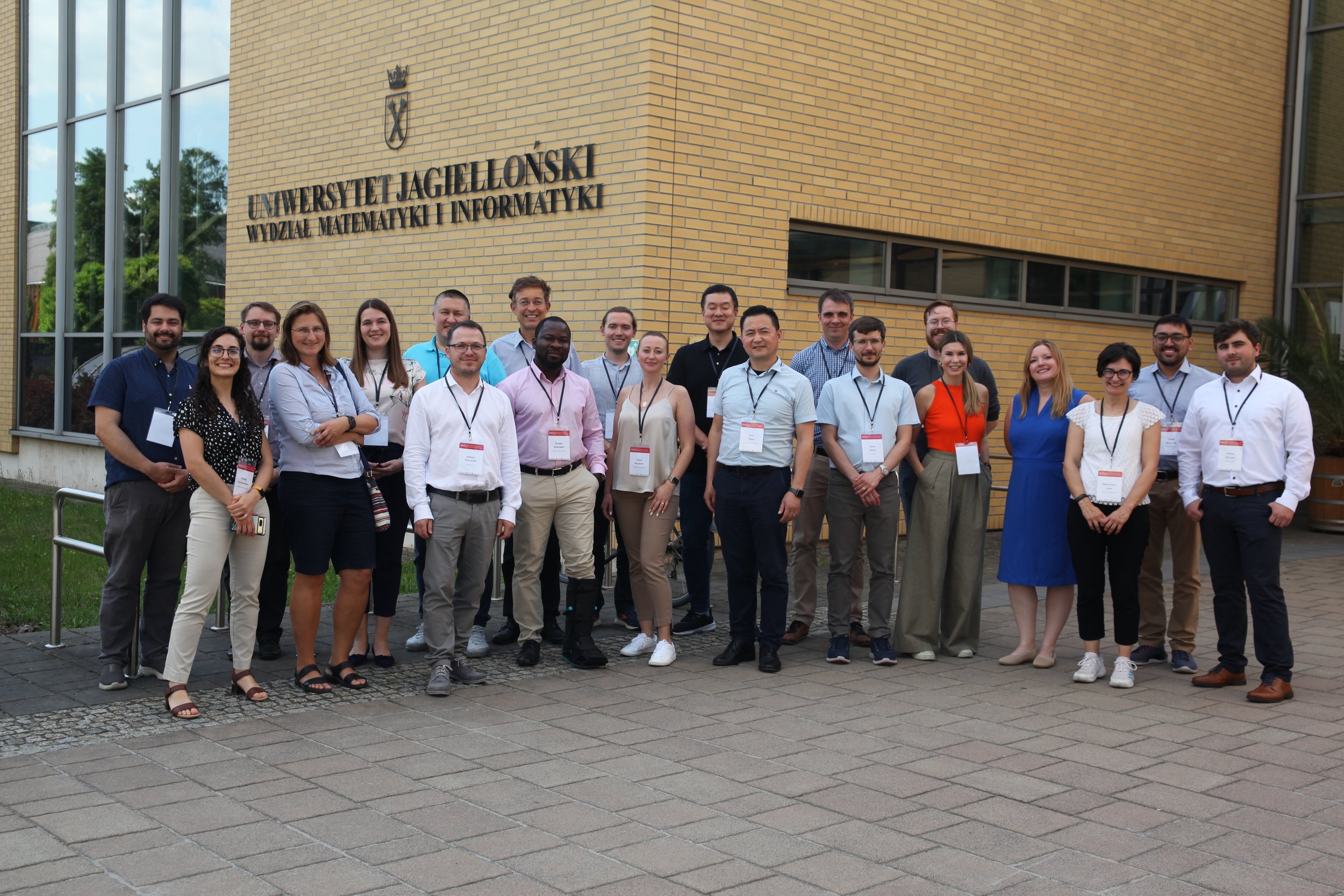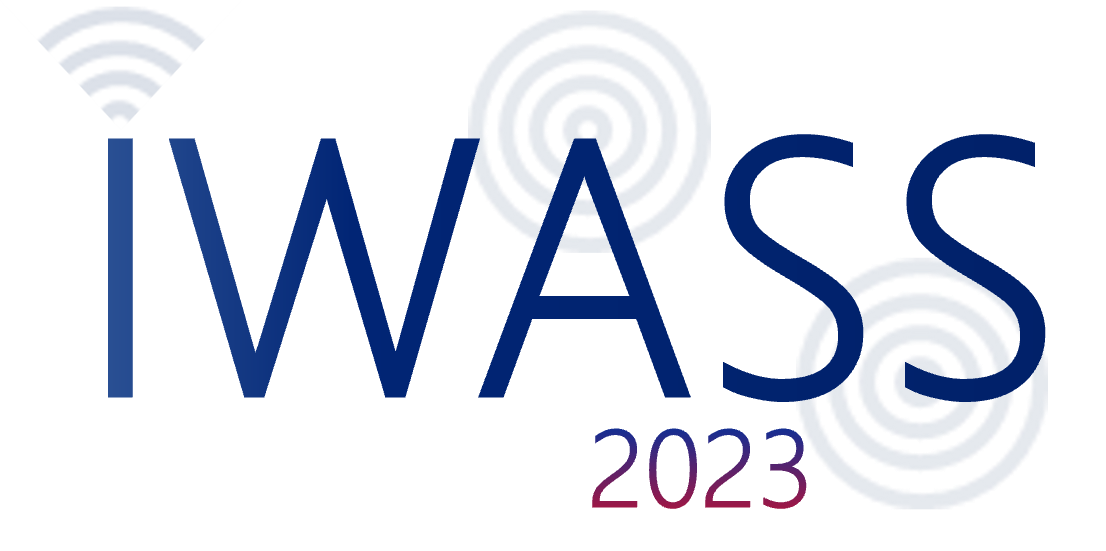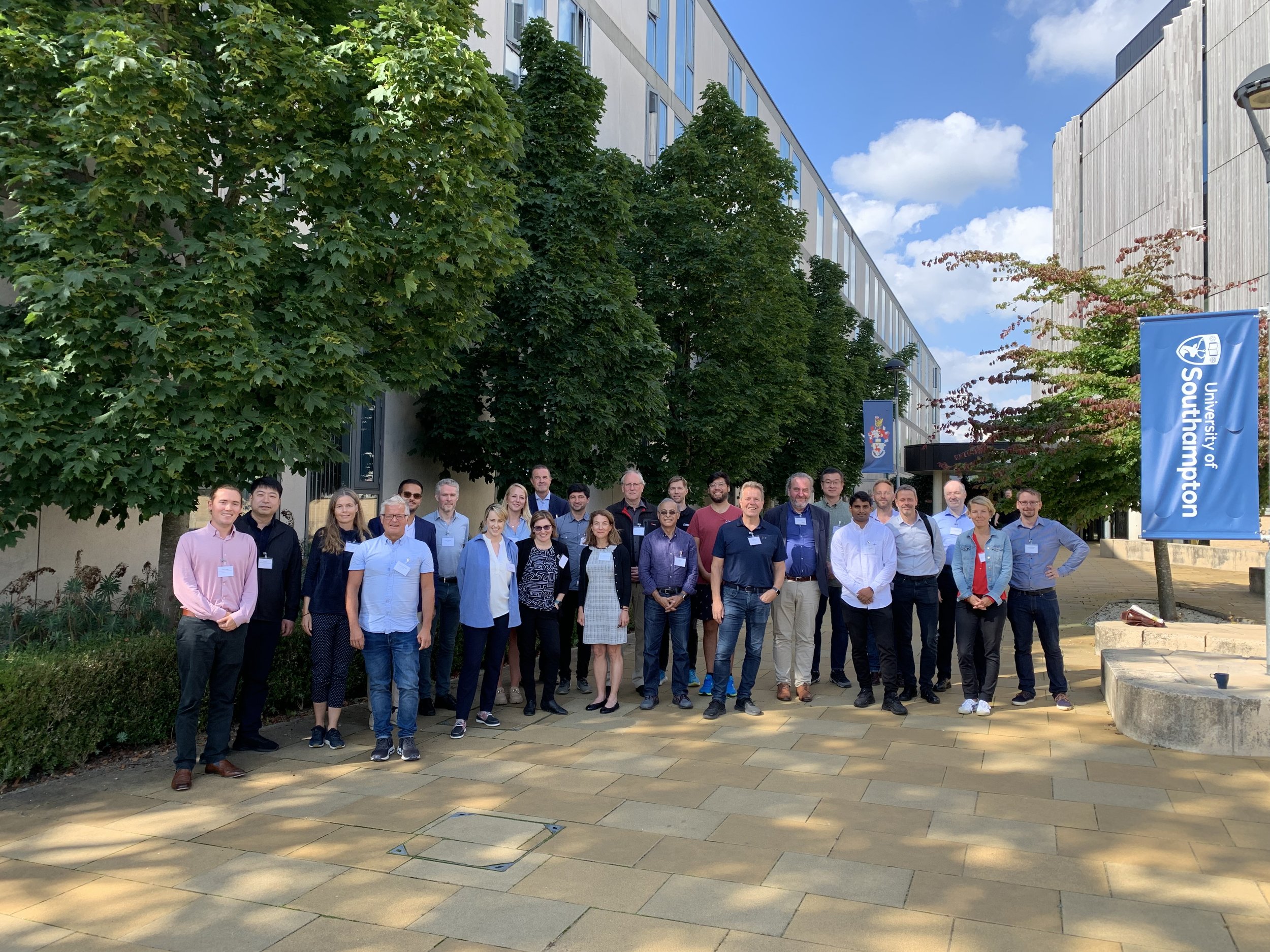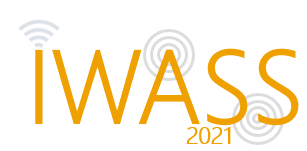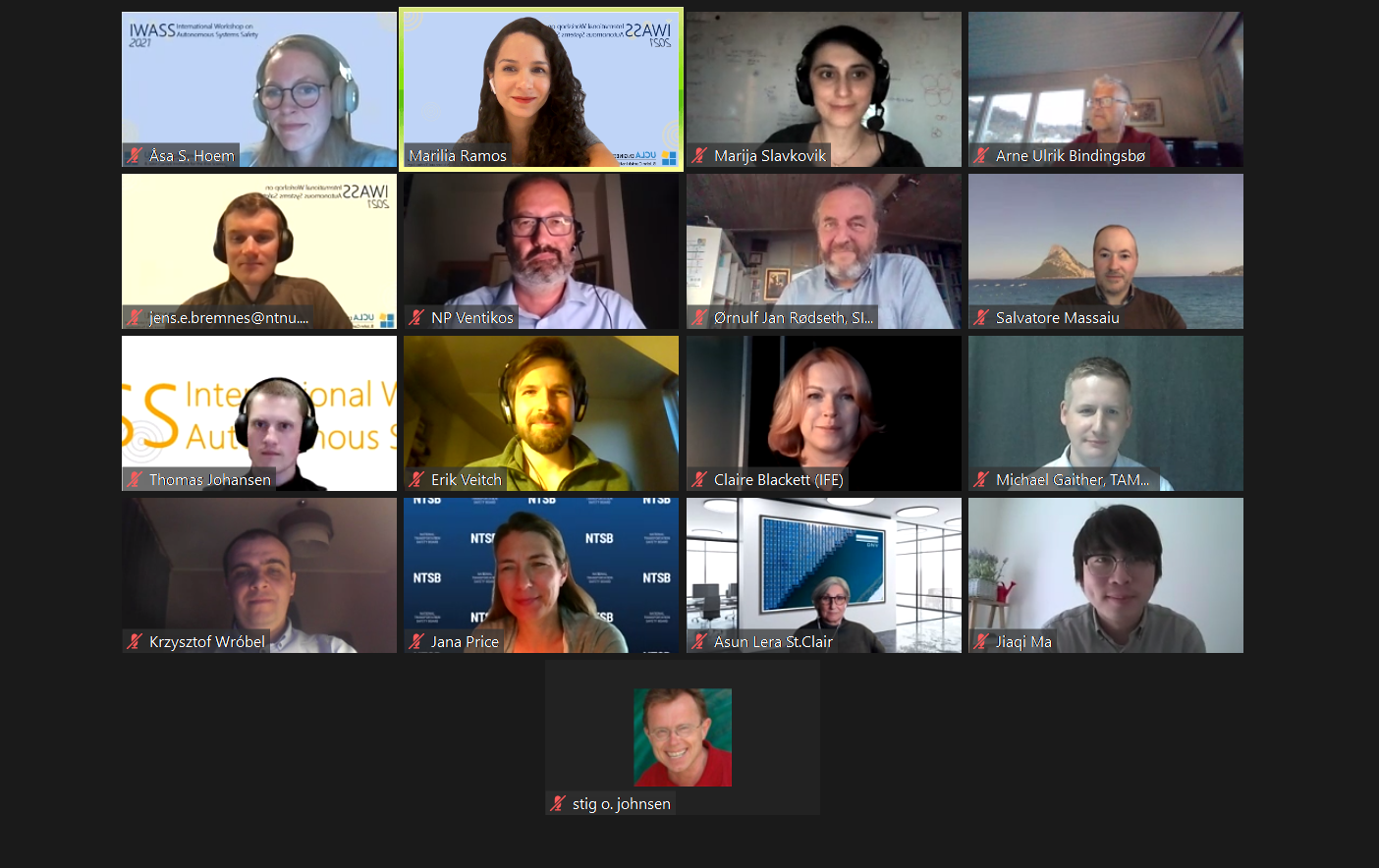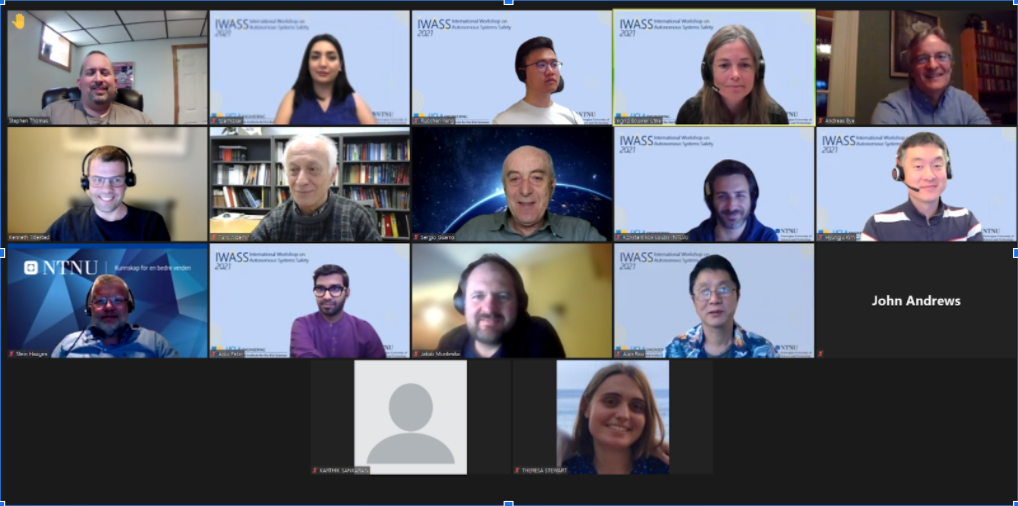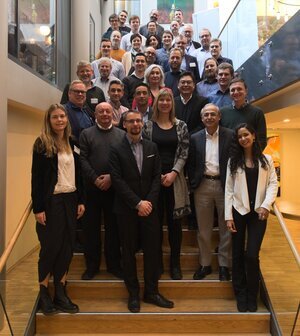Navigation
IWASS 2026 - Braga, Portugal
Information for Participants (Coming Soon!)
IWASS 2025
In the near future, the scope of autonomy is expected to increase across multiple industries and systems,
aiming for safer and more efficient operations. As these systems evolve to higher complexity, so do the challenges in assuring system safety. The aim of IWASS is to congregate experts from industry, academia, and regulations, to foster discussions and explore potential solutions to these many challenges.
At IWASS, several discussion groups cover multiple topics about the methods used for modeling, verification, validation and testing of autonomous systems, as well as the challenges brought by increased system complexity, cascading failures, the use of Artificial Intelligence (AI) techniques, and the role of humans in autonomous systems.
Five previous editions of the workshop (2019 – Trondheim, Norway; 2021 – online; 2022 – Dublin, Ireland, 2023 – Southampton, United Kingdom; 2024 – Cracow, Poland) successfully assembled a broad and diverse field of experts from different organizations and countries. Information of these previous workshops, invited speakers, panel sessions, and publications can be found below.
IWASS at ESREL 2026!
We are excited to announce that the next IWASS workshop will be held just prior to ESREL in Braga, Portugal!
We invite out participants to submit abstracts for our special session by October 19th, 2025.
More news coming soon!
Special Sessions at ESREL SRA-E 2025 - June, 2025
IWASS is at ESREL-SRA 2025! Through a Special Paper Session and a Panel Session.
We thank all the invited panelists, organizers, authors, and attendees for the discussions on trust in autonomous systems and the authors at the special paper session: Safety, Reliability, and Security (SRS) of Autonomous Systems.
Proceedings for IWASS 2025 are now live!
The 6th International Workshop on Autonomous Systems Safety - January, 2025
The International Workshop on Autonomous Systems Safety (IWASS) makes its way to the United States!
We're thrilled to announce our collaboration with the 71st Annual Reliability and Maintainability Symposium (RAMS 2025).
RAMS took place on January 26-30, in Miramar Beach, Florida, USA. IWASS 2025 was held at the same location on January 25th and 26th, and an IWASS panel was held at RAMS on Tuesday 27th.
The sixth edition of IWASS focused on key topics in Lifecycle Risk Management, Operational Safety Challenges, Regulation and Human-System Interaction, Safety Cases, Metrics, and Claims, and Society-in-the-Loop.
We thank our speakers, participants, and organizers for a wonderful session! IWASS 2025 Proceedings are now live!
The 5th International Workshop on Autonomous Systems Safety - June, 2024
Recent Advances in Autonomous Systems: Safety & Risk Implications
IWASS 2024 was organized by the B. John Garrick Institute for the Risk Sciences at the University of California Los Angeles (UCLA), the Norwegian University of Science and Technology (NTNU), and the Institute of Industrial Automation and Software Engineering of the University of Stuttgart.
The fifth IWASS took in Cracow, Poland, prior to the 34rd European Safety and Reliability Conference (ESREL 2024). The workshop gathered 30 participants from eleven countries and twenty-five organizations around the globe.
Three recurring topics were identified throughout the discussions at IWASS 2024. These topics provide a common thread across different systems and use cases explored: the impact of operational requirements on system design, the role of regulations and societal perception of risk in the development of new technologies, and the evolution of human-system interactions.
IWASS 2024 Proceedings are now published!
The 4th International Workshop on Autonomous Systems Safety - September, 2023
The Safety Case for Autonomous Systems
IWASS 2023 was organized by the B. John Garrick Institute for the Risk Sciences at the University of California Los Angeles (UCLA), the Norwegian University of Science and Technology (NTNU), and the Institute of Industrial Automation and Software Engineering of the University of Stuttgart.
The fourth IWASS took place in Southampton, United Kingdom, prior to the 33rd European Safety and Reliability Conference (ESREL 2023). IWASS 2023 was attended by thirty-nine in-person and online participants from eight countries and thirty organizations from academia, industry, and government.
With the increasing use of safety cases for autonomous systems safety, IWASS 2023 discussions revolved around safety assurance processes, the challenges in constructing defensible safety cases, the role of academia, industry, applied researchers, and policymakers have in the discussion surrounding the use of safety cases as credible safety assurance frameworks.
An IWASS Panel featuring our discussions was held during ESREL 2023. We thank our panelists and participants who enriched the discussions, and we look forward to continuing them in the future.
The 3rd International Workshop on Autonomous Systems Safety - August, 2022
IWASS 2022 was organized by the B. John Garrick Institute for the Risk Sciences at the University of California Los Angeles (UCLA), and the Norwegian University of Science and Technology (NTNU).
The third IWASS was held before the 32nd European Safety and Reliability Conference (ESREL 2022) on August 28th in Dublin, Ireland. The workshop gathered thirty participants from twenty organizations from ten countries around the globe.
Discussions at IWASS 2022 were distributed over three days and included domain experts’ presentations and discussion sessions. The goal was to create cross-disciplinary discussions and solutions related to fundamental challenges associated with the Safety, Reliability and Security of autonomous systems.
In addition, a panel session at the European Safety and Reliability Conference (ESREL 2022) discussed the workshop's main conclusions and additional points with a larger audience.
The 2nd International Workshop on Autonomous Systems Safety - April, 2021
IWASS 2021 was organized by the B. John Garrick Institute for the Risk Sciences at the University of California Los Angeles (UCLA), the Norwegian University of Science and Technology (NTNU).
Initially planned as an in-person event in 2020 at UCLA, IWASS 2021 switched to an online event in 2021 due to the COVID-19 pandemic and related travel restrictions. IWASS 2021 was held online on April 20th, 21st, and 28th 2021. The invitation-only events gathered forty-nine participants from thirty-nine organizations and nine countries.
At the second IWASS, discussions were organized around the presentations of five domain experts and four parallel sessions focused on specific topics. The four topics discussed in dedicated breakout sessions included:
Demonstrating Safety of Autonomous Systems;
Verification & Validation, Risk Acceptance; Human on the Loop;
The Role of Humans in Autonomous Systems Operations; Modeling and Simulation for Understanding Complexity and Cascading Failures; and
Artificial Intelligence and Data Analytics in Resilient Autonomous Systems.
The issues discussed at IWASS extended beyond the above-mentioned topics, including the need for a multidisciplinary view, international cooperation, and assessment of the impact of possible regional differences.
The 1st International Workshop on Autonomous Systems Safety - March, 2019
The First International Workshop on Autonomous Systems Safety (IWASS) was organized by the Department of Marine Technology at the Norwegian University of Science and Technology (NTNU) and the B. John Garrick Institute for the Risk Sciences at the University of California, Los Angeles (UCLA).
IWASS 2019 took place in Trondheim, Norway, from 11th to 13th of March 2019. The participation in the workshop was by invitation only and included forty-seven subject matter experts from Europe, Asia, Australia, and the U.S., working in both academia and industry.
Presentations and discussions at the first IWASS were guided by a set of interdisciplinarity topics on autonomous system Safety, Reliability and Security, namely: (i) Interaction of software, hardware, and human operators; (ii) assessment methods for safety, reliability and security; (iii) cyber security; (iv) legal and regulatory aspects; and (v) ethical and social aspects.
The challenges presented above are interdisciplinary in nature and require a collective effort by the research communities to categorize and classify risks and conceptualize and develop mitigating solutions.










